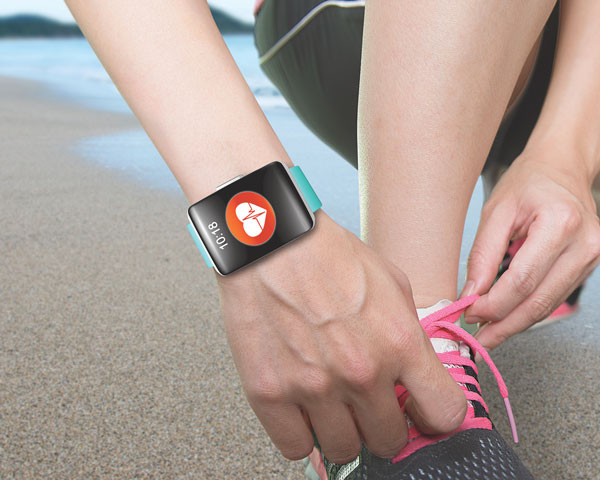
Celiac disease: Exploring four myths

What is prostatitis and how is it treated?

What is Cushing syndrome?

Exercises to relieve joint pain

Think your child has ADHD? What your pediatrician can do

Foam roller: Could you benefit from this massage tool?

Stepping up activity if winter slowed you down

Common causes of cloudy urine

Dragon fruit: How to enjoy this antioxidant-rich fruit

Are you getting health care you don't need?
Medical Devices & Technology Archive
Articles
Sound amplification device may be a cheaper hearing aid choice
In the journals
Hearing aids can cost thousands of dollars, but a study in the July 4, 2017, Journal of the American Medical Association found that less expensive over-the-counter personal sound amplification products (PSAPs) might be a good alternative for some people.
PSAPs resemble hearing aids and help amplify sounds the same way, but are not regulated by the FDA and thus cannot be marketed as a correction or treatment for hearing loss. They often are advertised as being helpful in noisy places like crowds and meetings, and are sold online for about $200 to $400.
Safety of implanted cardiac devices and MRIs: An update
Research we're watching
Contrary to conventional wisdom, most people with older implanted cardiac devices may be able to safely get a magnetic resonance imaging (MRI) scan, according to a study in the Feb. 23, 2017, New England Journal of Medicine.
The devices, which include pacemakers and implantable cardioverter-defibrillators (ICDs), help regulate and restore the heart's normal rhythm. Concerns that the powerful magnets in MRIs could damage these battery-operated devices led to the development of newer, MRI-safe devices. But an estimated two million people in the United States have one of the older devices, and at least half of them might need an MRI in the future.
Implanted defibrillators in older people: What to expect
Research we're watching
Implantable cardioverter-defibrillators (ICDs) are miniature electronic devices placed under the skin below the collarbone to sense and stop abnormal heart rhythms. A study in the Jan. 24, 2017, Journal of the American College of Cardiology provides new information about outcomes in older people who receive these lifesaving devices.
The study included 12,420 people with an average age of 75. All had survived a sudden cardiac arrest and received an ICD. Nearly four in five of the participants survived at least two years. During the two-year period, nearly 65% were hospitalized at some point. Many were admitted to skilled nursing facilities during the study, including about 32% of those ages 80 and older.
Stents and bypass equally effective for many cases of heart disease
A new study found that a minimally invasive stent procedure is just as effective as bypass surgery for people with left main coronary artery disease. Stenting also had a lower risk of complications and death compared with the surgery.
Are wristwatch-style heart rate monitors accurate?
Wristwatch-style fitness monitors use a sensor that detects blood flow through the skin to estimate a person’s heart rate. Some brands are more accurate that others, but none are as accurate as chest-strap monitors.
Ask the doctor: Is placing an IUD immediately after delivery safe?
Mobile app reduces stress incontinence episodes in small trial
Women who used Tät, a smartphone app, did more pelvic floor exercises and had greater reductions in episodes of stress incontinence.
Monitoring your heart rhythm with a smartphone: A good call?
An app that detects an irregular heart rhythm could be reassuring for people worried about afib.
Image: Prykhodov /Thinkstock
Just over two years ago, the FDA approved the AliveCor Heart Monitor, which consists of a smartphone app plus a phone case with special sensors on the back. Touching the sensors with your fingers allows you to see a simple version of your heart's electrical activity on the phone screen. In the latest version, called Kardia, the sensors just need to be near (not necessarily on) your phone. The readout reveals if your heart rhythm looks normal or if you appear to have atrial fibrillation (afib)—a rapid, irregular heart rhythm that raises the risk of stroke.
Currently, several new smartphone apps to alert you about possible afib using just the phone itself—no special case required—are under development. Recent research suggests they're about as accurate as the Kardia system, although they haven't yet been cleared by the FDA and aren't on the market. If and when they are, could these apps help improve afib screening?
Bypass surgery after a stent?
After an artery-opening angioplasty plus a stent, a person may need bypass surgery in the future. Likewise, some people who have bypass surgery may later need a stent. Neither procedure stops atherosclerosis, the disease that clogs heart arteries.
FDA approves first absorbable stent
The FDA approved the first artery-opening stent made from a substance that biodegrades in about three years. The new stents appear to work as well as older metal stents, but blood clots may be more likely to form inside the absorbable stents.

Celiac disease: Exploring four myths

What is prostatitis and how is it treated?

What is Cushing syndrome?

Exercises to relieve joint pain

Think your child has ADHD? What your pediatrician can do

Foam roller: Could you benefit from this massage tool?

Stepping up activity if winter slowed you down

Common causes of cloudy urine

Dragon fruit: How to enjoy this antioxidant-rich fruit

Are you getting health care you don't need?
Free Healthbeat Signup
Get the latest in health news delivered to your inbox!
Sign Up





